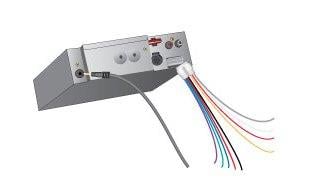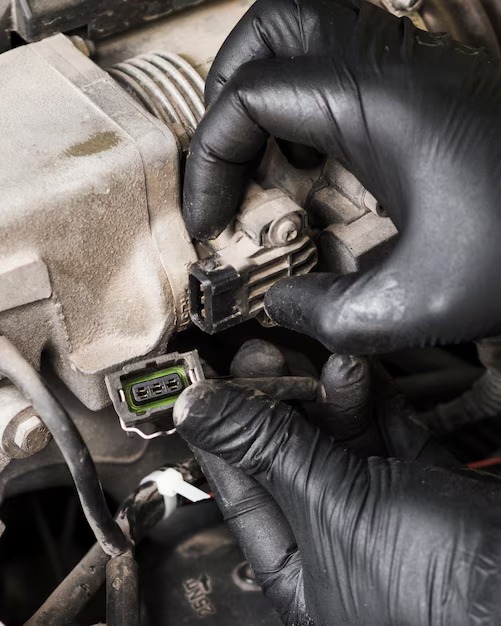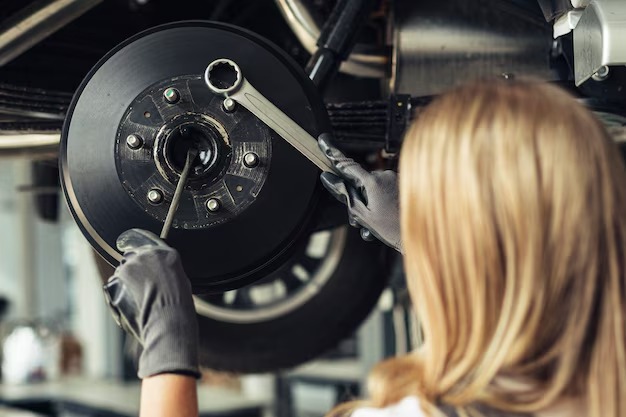Common car Maintenance Myths Debunked

Common car Maintenance Myths Debunked
In the realm of vehicle upkeep, a myriad of misconceptions circulate, leading many to form misguided opinions about proper practices. These prevalent ideas can often result in poor choices that negatively affect performance and longevity. Dispelling these inaccuracies is essential for those who wish to enhance their understanding and approach to ensuring their vehicles run smoothly.
The journey toward knowledgeable and effective vehicle care requires critical thinking and a willingness to challenge the status quo. Many commonly held beliefs, often passed down through generations, lack factual support and can mislead even the most diligent owner. It’s crucial to explore these assumptions and educate oneself on what truly matters in order to foster a better rapport with one’s automobile.
In this article, we will delve into ten prevalent misconceptions that may hinder conscientious practices. By examining each myth, we aim to illuminate the truth and encourage informed decision-making, fostering a more reliable and efficient vehicle experience.
Common Misconceptions About Oil Changes
Numerous misunderstandings surround the subject of oil replenishment. These inaccuracies can lead to improper practices and even result in internal damage. Recognizing the reality behind these beliefs is essential for ensuring efficient operation and longevity.
| Misconception | Reality |
|---|---|
| Oil should be changed every 3,000 miles | Many modern engine oils and designs allow for extended intervals, often up to 7,500 miles or more. |
| All oils are the same | Different formulations exist, including synthetic and conventional, each with unique benefits depending on the vehicle. |
| Waiting until the oil looks dirty is acceptable | Oil can deteriorate and lose its effectiveness long before it appears contaminated; regular checks are necessary. |
| Changing oil filters isn’t crucial every time | Replacing the filter is important to avoid contaminants from re-entering the system. |
| High mileage oils are only for old vehicles | These oils can benefit engines with higher wear and provide extra protection regardless of age. |
The Truth About Air Filters
Understanding the role of air filtration is crucial for optimizing performance and efficiency. These components play a significant part in ensuring that the engine receives clean air, which directly impacts overall function and longevity.
There are several misconceptions surrounding air filtration that deserve clarification:
- Myth 1: Air filters only need replacement when they look dirty.
This belief can lead to poor engine performance. Regular inspections are vital as filters can become ineffective even if they appear clean.
- Myth 2: All air filters are the same.
In reality, different vehicles require specific types of air filters that are designed for their unique specifications and performance demands.
- Myth 3: High-performance filters are unnecessary.
Investing in higher-quality filters can result in better airflow and filtration, leading to enhanced engine output and improved fuel efficiency.
To ensure optimal operation, it’s essential to follow the recommended replacement schedule provided by the manufacturer, taking into account driving conditions and environment. Regular checks can help maintain ideal performance and avoid potential issues down the line.
What You Didn’t Know About Tire Care
Understanding proper treatment for your vehicle’s wheels can significantly influence performance, safety, and lifespan. Many individuals overlook essential practices, believing that basic upkeep is sufficient. However, an informed approach can lead to a more enjoyable and secure driving experience.
Optimal Pressure and Its Importance
Maintaining appropriate inflation levels is crucial for achieving optimal traction and fuel efficiency. Many assume that the outer appearance of a tire indicates its pressure, yet this is a common error. Regularly checking the PSI with a reliable gauge ensures that tires operate within the manufacturer’s specifications, reducing wear and enhancing longevity.
The Role of Rotation
Frequent rotation is often underestimated in its ability to promote even wear across all four tires. Depending on driving conditions and patterns, neglecting this action can lead to premature deterioration. Following a specific schedule based on mileage can prevent unnecessary costs and enhance overall vehicle handling.
Debunking Brake Maintenance Myths
Understanding the various misconceptions surrounding the upkeep of braking systems is crucial for vehicle safety and performance. Many individuals hold onto outdated beliefs that can lead to unnecessary expenses or, worse, hazardous situations on the road. Clearing up these misunderstandings helps in promoting better practices and ensuring the longevity of braking components.
A common fallacy suggests that brakes only need attention when they start to squeak or display warning signs. In reality, regular inspections are vital to ensure optimal function before problems arise. Another prevalent belief is that replacing the pads automatically necessitates changing the rotors. While this may sometimes be true, it’s not a hard and fast rule; a thorough assessment will determine the actual condition of the components.
Many also assume that cross-drilled or slotted rotors are essential for enhanced performance. However, for everyday driving conditions, standard rotors often provide sufficient braking capability. Additionally, some people think that high-performance pads are required solely for aggressive driving styles, ignoring that their softer counterparts may deliver better stopping power for typical usage.
Another misconception is that brake fluid does not require replacement unless it appears dirty. In fact, moisture accumulation over time can diminish its effectiveness, making periodic flushing a necessary step in preserving the system’s integrity. Lastly, it’s often assumed that all brake parts are universally interchangeable. Each vehicle has specific requirements, making it crucial to adhere to manufacturer specifications for replacements.
Fuel Additives: Do They Really Help?
The effectiveness of fuel supplements is a topic often surrounded by debate and speculation. Many individuals wonder whether these products truly provide benefits or if they are merely a marketing gimmick. Understanding the claims and scientific evidence can help clarify this issue.
- Performance Enhancement: Some advocates claim that additives can improve engine performance by cleaning fuel injectors and intake valves.
- Fuel Efficiency: There are assertions that utilizing these products leads to better fuel economy, reducing the frequency of refueling.
- Emission Reduction: Certain formulations purport to minimize harmful emissions, contributing to a more environmentally friendly operation.
- Octane Boost: High-octane blends are said to enable smoother operation, especially in engines designed for premium fuel.
However, it is crucial to approach these claims with discernment. Independent studies reveal mixed outcomes regarding their actual effectiveness. While some vehicles may experience noticeable differences, others may see minimal or no change.
- Research the specific supplement before use.
- Consider the manufacturer’s reputation and product reviews.
- Evaluate whether your vehicle genuinely requires such enhancement based on its current performance.
Ultimately, the necessity and benefits of these additives may vary significantly depending on individual situations. Consulting with a professional can provide personalized insights tailored to one’s specific vehicle requirements.
Understanding the Reality of Engine Cleaning
Cleaning the internal components of a vehicle’s power unit is often a topic shrouded in misconception. Many enthusiasts and everyday drivers hold various beliefs about its necessity and effectiveness. Gaining clarity about what engine cleaning truly entails can help in making informed decisions regarding this aspect of vehicle care.
Myths Surrounding Engine Cleaning
One prevalent assumption is that the act of cleaning the engine guarantees enhanced performance and longevity. While removing dirt and grease can contribute to an improved environment for engine components, it does not automatically translate to a boost in efficiency. Moreover, overzealous cleaning techniques can inadvertently lead to damage if not executed with caution.
Benefits of Professional Services
Employing skilled professionals to perform engine servicing can yield more positive results than DIY methods. Experts utilize specialized tools and products designed to safely eliminate deposits without causing harm. In addition, regular inspections can uncover underlying issues that may not be visible to the untrained eye, ultimately leading to better performance and reliability.
Prioritizing a balanced approach to engine upkeep can yield tangible benefits while minimizing potential risks associated with aggressive cleaning techniques.
Question-answer: Car maintenance myths debunked
What is the importance of regular maintenance for modern vehicles?
Regular maintenance for modern vehicles is crucial as it helps ensure optimal performance, increases safety, and extends the lifespan of the vehicle. By adhering to a maintenance schedule, drivers can prevent costly auto repair issues down the line.
How can a mechanic help save you money in the long run?
A skilled mechanic can help save you money by identifying potential problems early through regular maintenance checks. This proactive approach can prevent major auto repair costs that may arise from neglecting smaller issues.
What are some signs that your vehicle may be idling too high?
If your vehicle’s engine is idling too high, you may notice unusual vibrations, increased fuel consumption, or a fluctuating RPM gauge. A mechanic can diagnose and fix the issue to improve efficiency and save you money on gas.
Why is it essential to find a trustworthy auto repair shop?
Finding a trustworthy auto repair shop is essential because it ensures that you receive honest assessments and quality service. A reliable mechanic will provide accurate estimates and perform necessary repairs without overcharging, ultimately saving you money.
How does regular maintenance affect the resale value of modern vehicles?
Regular maintenance significantly impacts the resale value of modern vehicles. A well-maintained car with documented service history tends to attract higher offers, as potential buyers are more confident in its reliability and condition.
What should you expect during a typical auto repair visit?
During a typical auto repair visit, you should expect a thorough inspection of your vehicle, a discussion with the mechanic about any concerns, and an estimate for any necessary repairs. Regular maintenance services may also be performed to keep your vehicle in top shape.
How can neglecting regular maintenance lead to costly auto repair bills?
Neglecting regular maintenance can lead to minor issues escalating into major problems, resulting in costly auto repair bills. For example, failing to change the oil regularly can cause engine wear, leading to expensive repairs or even engine replacement.
What role does a mechanic play in ensuring your vehicle runs smoothly?
A mechanic plays a vital role in ensuring your vehicle runs smoothly by performing regular maintenance tasks such as oil changes, brake inspections, and tire rotations. Their expertise helps identify potential issues before they become serious problems.
How can modern vehicles benefit from advanced diagnostic tools during auto repair?
Modern vehicles benefit from advanced diagnostic tools during auto repair because these tools allow mechanics to quickly identify issues through computer diagnostics. This efficiency not only speeds up the repair process but also helps save you money by targeting specific problems.
What are some common maintenance tasks that can help keep your vehicle’s idle consistent?
Common maintenance tasks that can help keep your vehicle’s idle consistent include checking and replacing spark plugs, cleaning the throttle body, and ensuring proper fuel system function. Regular visits to a mechanic for these tasks can enhance performance and fuel efficiency.
Many car owners believe that warming up your car for several minutes is necessary before driving?
In reality, modern cars reach operating temperature quickly, and idling for long periods can waste fuel and lead to unnecessary wear and tear.
A common myth among car owners is that washing your car with dish soap is safe?
Using dish soap can damage your vehicle’s paint and protective wax, which is why it’s crucial to use products designed for car care.
Many car owners underestimate the importance of maintaining correct tire pressure?
Incorrect tire pressure can lead to uneven wear on your tires and negatively affect performance and safety, making it essential to check your owner’s manual for the recommended levels.
There is a persistent myth that tire rotation is unnecessary if the tires appear to be wearing evenly?
Regular tire rotation helps prevent uneven wear and extends the life of your tires, which can save you from costly repairs down the line.
Some people believe that every car should use premium fuel for optimal performance?
However, many car owners do not realize that most vehicles are designed to run efficiently on regular fuel, so using premium may not provide significant benefits.
A common misconception is that you should replace your air filter only when it looks dirty?
To keep your car in top shape, it’s best to follow the maintenance recommendations in your owner’s manual and replace your air filter regularly.
Many car owners think that neglecting to service your car won’t lead to immediate problems?
This belief can lead car owners astray; regular maintenance is crucial for keeping fluids in your car at optimal levels and preventing expensive repairs.
Some believe that using transmission fluid from any brand is acceptable?
To avoid damaging your vehicle, always check your owner’s manual for the specific type of transmission fluid recommended for your car.
Myth 4 suggests that driving gently has no effect on your car’s longevity?
In fact, your driving habits significantly impact wear and tear on your vehicle; driving gently can help maintain performance and extend the life of your car.
Finally, many car owners are misled by repair myths debunked by experts in the auto industry?
Understanding these common car care myths can help you make informed decisions about preventive maintenance and avoid costly repairs in the future.








